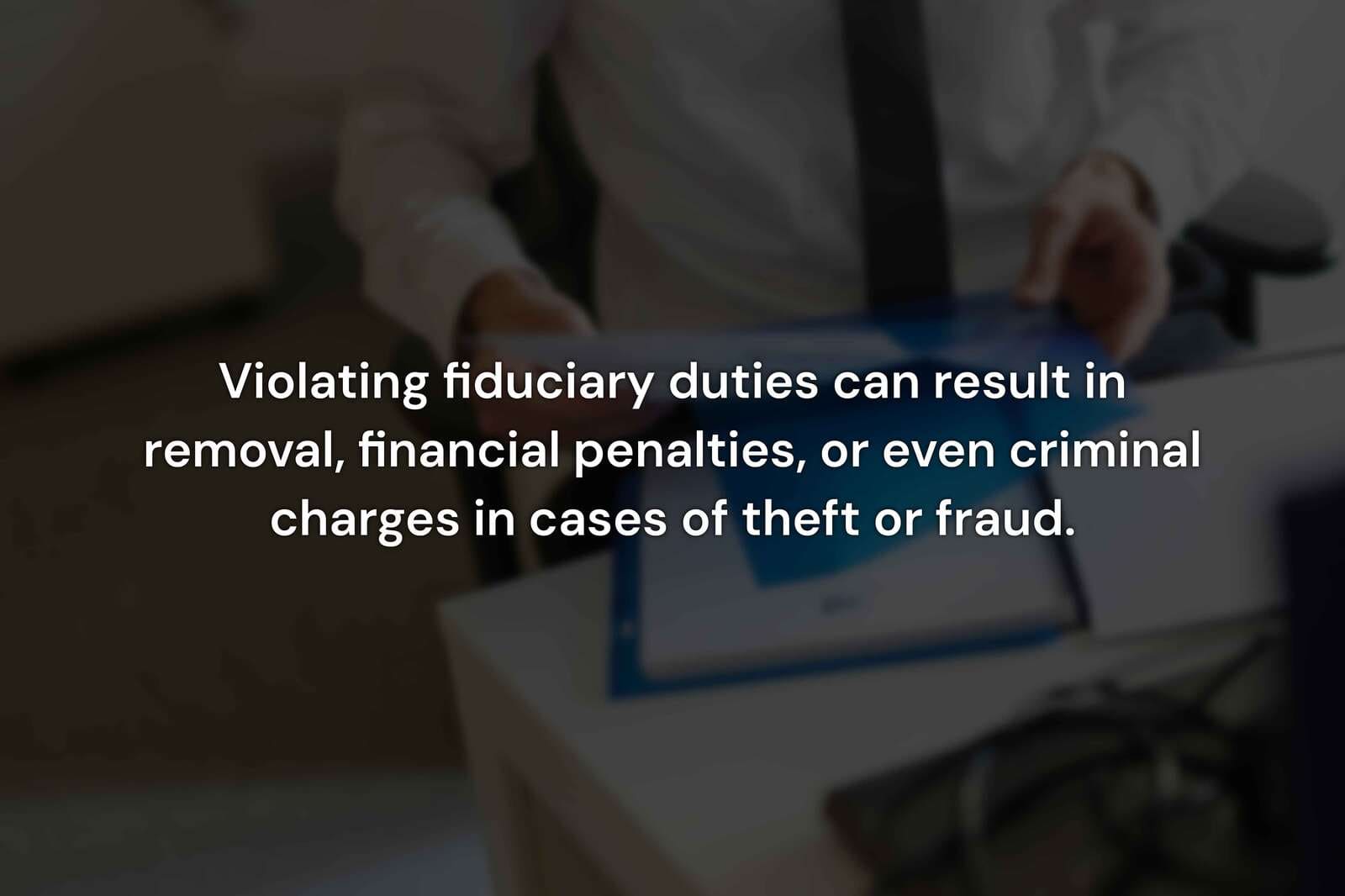An administrator of an estate cannot legally take everything for themselves. Their role is to manage and distribute the deceased person’s assets according to the will, or if no will exists, according to state intestacy laws. Taking estate assets for personal benefit without legal authorization is considered a breach of fiduciary duty and can result in legal consequences.

The Administrator’s Legal Role
The administrator, appointed by the court, is responsible for gathering assets, paying debts, and distributing what remains to heirs or beneficiaries. They must follow state law and the probate court’s instructions at every step.
Their duties include:
- Collecting and safeguarding estate property.
- Paying legitimate debts and taxes.
- Distributing assets according to the will or intestacy statutes.
- Providing an accounting of all transactions to the court.
Fiduciary Duty and Legal Boundaries
An administrator has a fiduciary duty to act in the best interest of the estate and its beneficiaries. This means:
- No Self-Dealing: They cannot use estate assets for personal gain unless specifically authorized.
- Transparency: They must keep detailed records of all transactions.
- Accountability: They must be prepared to present a full accounting to the court and beneficiaries.
Violating these duties can result in removal from their position, financial penalties, and even criminal charges in cases of theft or fraud.

What Happens if an Administrator Oversteps
If an administrator takes assets without legal authority, beneficiaries can file a complaint in probate court. The court may:
- Order the return of misappropriated property.
- Require repayment of lost value.
- Remove the administrator from the role.
- Pursue criminal prosecution if theft is involved.
Legal Protections for Beneficiaries
Beneficiaries have the right to request an accounting of the estate at any point during administration. This report lists all assets, debts, expenses, and distributions, providing transparency and reducing the risk of misconduct.
How to Prevent Administrator Misconduct
Prevention starts with the court’s selection of a qualified administrator. Courts often prioritize close family members, but if potential conflicts exist, a neutral third party may be appointed. Estate planning documents can also designate who should serve as executor or administrator, providing guidance to the court.
The Importance of Legal Guidance for Administrators
Managing an estate is complex and requires strict compliance with probate laws. Working with a qualified estate planning attorney helps ensure the administrator understands their responsibilities, meets deadlines, and avoids mistakes that could lead to disputes.
When an Administrator Might Receive Assets
An administrator can inherit from the estate if they are also a beneficiary under the will or an heir under intestacy law. However, they must still follow the legal process and cannot take assets early or without accounting for them in the probate process.
Why This Question Arises
Beneficiaries often ask if an administrator can take everything when communication breaks down or distributions are delayed. In most cases, delays are due to court timelines, debt resolution, or asset sales—not misconduct. However, transparency and regular updates are essential to maintaining trust.

Related Guidance on Estate Administration
How to Become Administrator of Estate
This process involves petitioning the court, meeting eligibility requirements, and taking an oath to fulfill legal duties.
Can an Administrator of an Estate Be a Beneficiary?
Yes, but they must separate their personal interests from their administrative duties to avoid conflicts.
What Does the Administrator of an Estate Do?
Their core duties include collecting assets, paying debts, and distributing property according to the will or state law.
How to File for Estate Administrator
Filing requires submitting a petition to the probate court, notifying interested parties, and receiving court approval to act.











